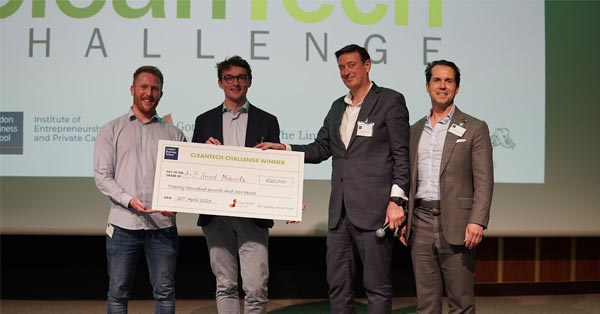A&B Smart Materials won this year’s CleanTech Challenge (CTC) with their new solar panel cooling solution and received £20,000 to help develop and improve their technology.
According to a report published by the World Economic Forum, excessive heat can cause a reduction in the efficiency of solar panels, resulting in a decrease in energy output about 0.5 percentage points for every degree Celsius increase in terms of temperature. And solar farms worldwide lose up to 25% of their energy generation due to overheating alone.
Backed by a team with a rich background in thermal engineering, nanotechnology and smart materials, A&B Smart Materials’ passive cooling technology offers using new hydrogels has the potential to increase energy generation by 5%. It absorbs water from the atmosphere at night and is released through evaporation during the day, cooling the solar panel during operating hours.

The first prototypes are being tested at the University of Oxford’s Begbroke Science Park. The company is also applying for a patent and making plans to collaborate with solar farms around the world to combine this technology.
“The £20,000 prize money will play a vital role in advancing our business, allowing us to further develop and test our solar cooling gel technology, ultimately bringing us closer to the market. We cannot emphasize enough what a great experience this has been for A&B Smart Materials, and we are excited to continue our journey towards revolutionizing solar panel efficiency and making a positive impact on the environment,” said Amaury van Trappen de Buggenoms and Benjamin White, founders of A&B Smart Materials.
The CleanTech Challenge is an international pitch competition for companies, created by students, for students, who have innovative ideas for clean technology. It is co-organised by London Business School (LBS) and University College London (UCL) with the aim of helping students develop their clean technology concepts into viable businesses.
“Hosting the CleanTech Challenge was an incredible opportunity to connect with the European cleantech entrepreneurship ecosystem,” said Sami Walter, Chair of the CleanTech Challenge.
All current university students, including those pursuing undergraduate, postgraduate and doctoral degrees from recognized higher education institutions around the world, are eligible to participate in the Challenge.


